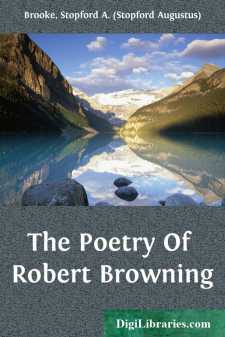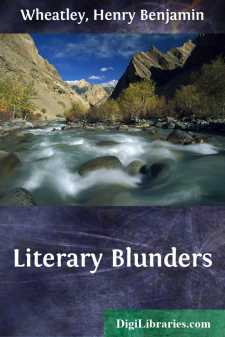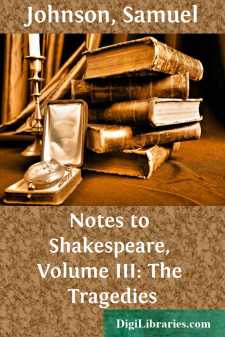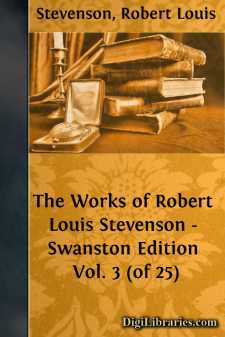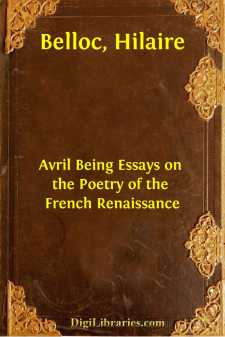Literary Criticism
- American 18
- Ancient and Classical 3
- Asian 1
- Australian & Oceanian 1
- Books & Reading 8
- Caribbean & Latin American 2
- Drama 2
- English, Irish, Scottish, Welsh 49
- European 7
- General 37
- Horror 1
- Humor 2
- Jewish 2
- Medieval 2
- Middle Eastern 3
- Poetry 7
- Renaissance 6
- Russian & Former Soviet Union 1
- Shakespeare 27
Literary Criticism Books
Sort by:
by:
Ian Maclaren
BOOKS AND BOOKMEN They cannot be separated any more than sheep and a shepherd, but I am minded to speak of the bookman rather than of his books, and so it will be best at the outset to define the tribe. It does not follow that one is a bookman because he has many books, for he may be a book huckster or his books may be those without which a gentleman’s library is not complete. And in the present...
more...
CHAPTER I BROWNING AND TENNYSON Parnassus, Apollo's mount, has two peaks, and on these, for sixty years, from 1830 to 1890, two poets sat, till their right to these lofty peaks became unchallenged. Beneath them, during these years, on the lower knolls of the mount of song, many new poets sang; with diverse instruments, on various subjects, and in manifold ways. They had their listeners; the Muses...
more...
LIFE OF SHAKESPEARE. Shakespeare, by general suffrage, is the greatest name in literature. There can be no extravagance in saying, that to all who speak the English language his genius has made the world better worth living in, and life a nobler and diviner thing. And even among those who do not "speak the tongue that Shakespeare spake," large numbers are studying the English language mainly...
more...
1881. Question 1.—Sound is said to travel about four times as fast in water as in air. How has this been proved? State your reasons for thinking whether sound travels faster or slower in oil than in water. <p 184> Answer(a).—Mr. Colladon, a gentleman who happened to have a boat, wrote to a friend called Mr. Sturm to borrow another boat and row out on the other side of the lake, first...
more...
by:
Samuel Johnson
TRAGEDIES Vol. IV (392) Most of the notes which the present editor has subjoined to this play were published by him in a small pamphlet in 1745. I.i (393,*) Enter three Witches] In order to make a true estimate of the abilities and merit of a writer, it it always necessary to examine the genius of his age, and the opinions of his contemporaries. A poet who should now make the whole action of his...
more...
These studies are collected from the monthly press. One appeared in the New Quarterly, one in Macmillan’s, and the rest in the Cornhill Magazine. To the Cornhill I owe a double debt of thanks; first, that I was received there in the very best society, and under the eye of the very best of editors; and second, that the proprietors have allowed me to republish so considerable an amount of copy. These...
more...
by:
Hilaire Belloc
MY DEAR ECCLES, You will, I know, permit me to address you these essays which are more the product of your erudition than of my enthusiasm. With the motives of their appearance you are familiar. We have wondered together that a society so avid of experience and enlargement as is ours, should ignore the chief expression of its closest neighbour, its highest rival and its coheir in Europe: should ignore,...
more...
by:
William Hazlitt
LECTURE I.—INTRODUCTORY ON POETRY IN GENERAL. The best general notion which I can give of poetry is, that it is the natural impression of any object or event, by its vividness exciting an involuntary movement of imagination and passion, and producing, by sympathy, a certain modulation of the voice, or sounds, expressing it. In treating of poetry, I shall speak first of the subject-matter of it, next...
more...
by:
Thomas Carlyle
BIOGRAPHICAL INTRODUCTION. There comes a time in the career of every man of genius who has devoted a long life to the instruction and enlightenment of his fellow-creatures, when he receives before his death all the honours paid by posterity. Thus when a great essayist or historian lives to attain a classic and world-wide fame, his own biography becomes as interesting to the public as those he himself...
more...
CHAPTER I. THE SPIRIT OF THE RENAISSANCE. Difficulty of fixing Date—Meaning of Word Renaissance—The Emancipation of the Reason—Relation of Feudalism to the Renaissance—Mediæval Warnings of the Renaissance—Abelard, Bacon, Joachim of Flora, the Provençals, the Heretics, Frederick II.—Dante, Petrarch, Boccaccio—Physical Energy of the Italians—The Revival of Learning—The Double...
more...



